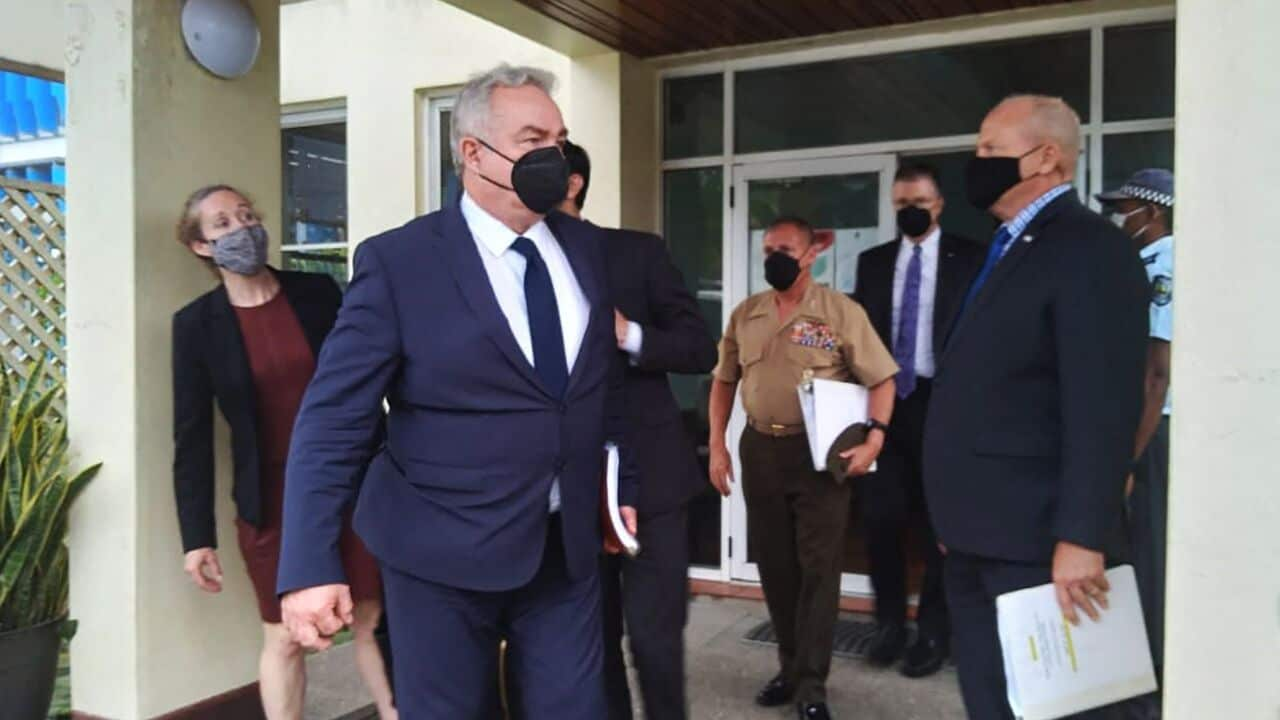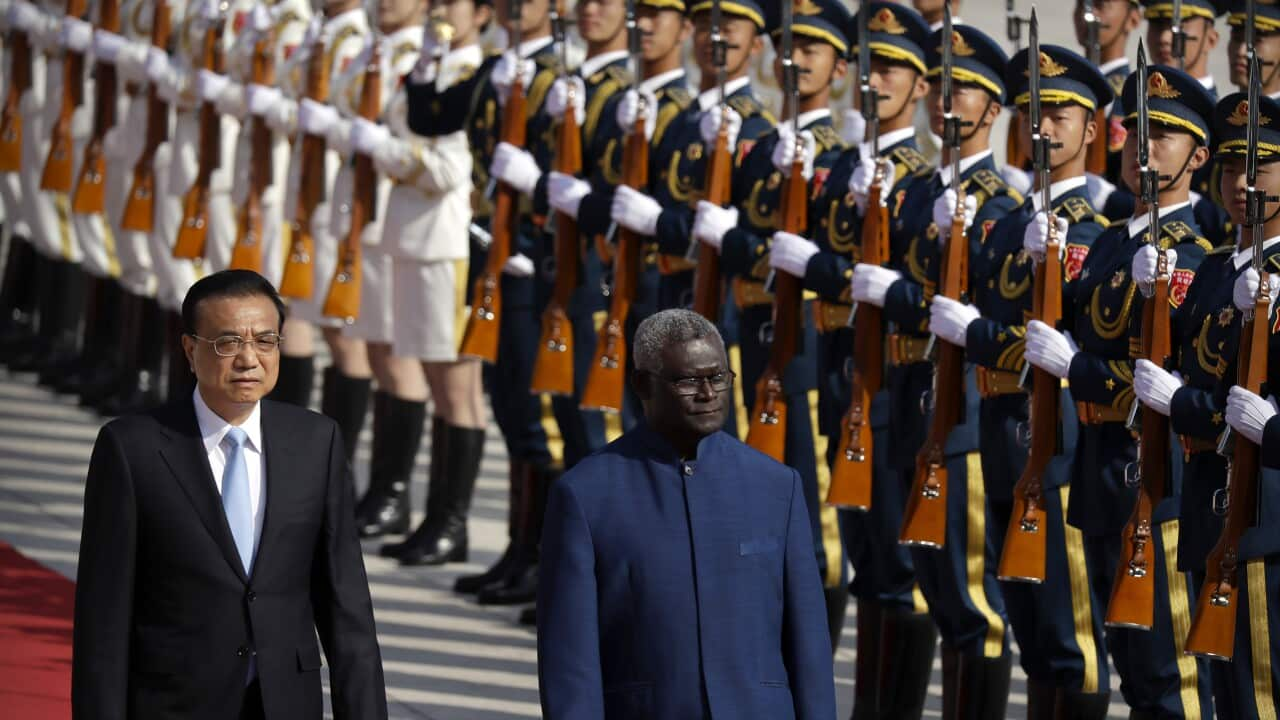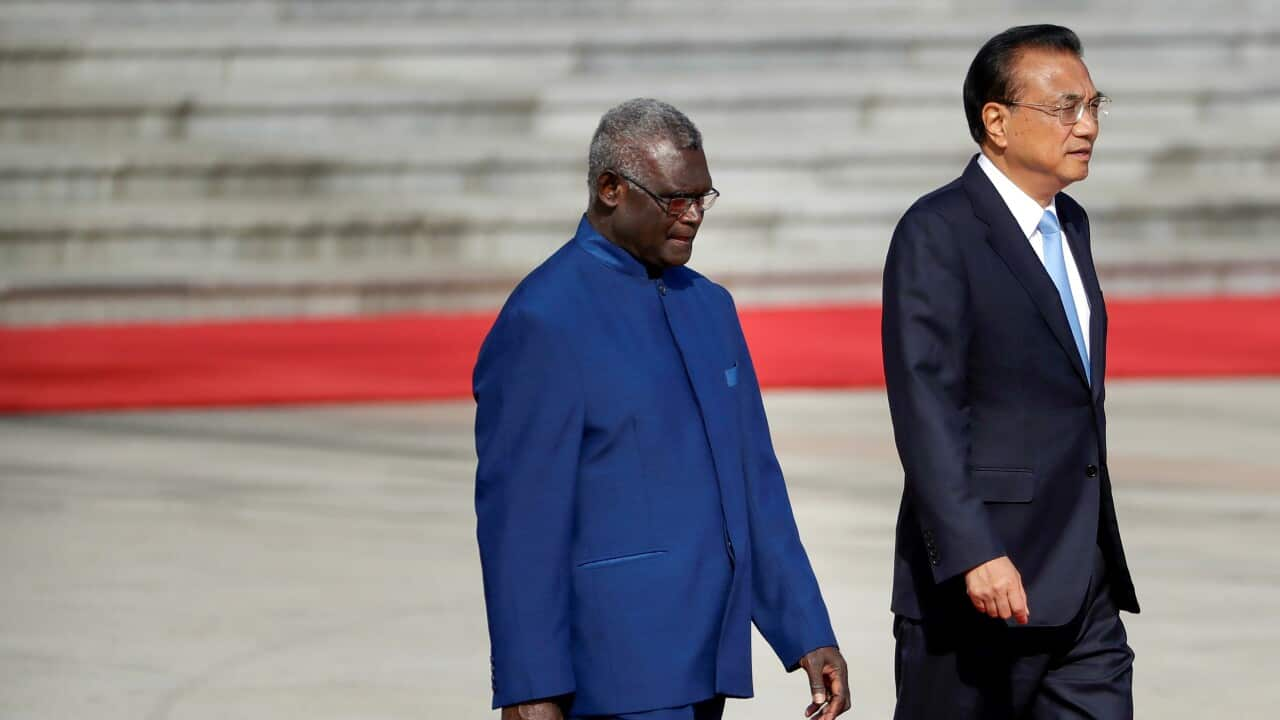A senior-level US delegation met the leader of Solomon Islands on Friday and warned that Washington would have "significant concerns and respond accordingly" to any steps to establish a permanent Chinese military presence in the Pacific island nation.
A White House statement said Solomon Islands Prime Minister Manasseh Sogavare reiterated to the visiting delegation - led by White House Indo-Pacific coordinator Kurt Campbell - that there would be no military base, no long-term presence, and no power projection capability under a security deal signed with China.
The White House gave no indication of what the US response would be to such an eventuality, but its blunt tone indicated the level of US concern that led to the dispatch of Mr Campbell's mission to the remote island country this week.
"If steps are taken to establish a de facto permanent military presence, power-projection capabilities, or a military installation, the delegation noted that the United States would then have significant concerns and respond accordingly," it said.
"The United States emphasized that it will follow developments closely in consultation with regional partners."
The statement said the US delegation outlined specific steps Washington would take to advance the welfare of the people of the Solomons, including by expediting the opening of an embassy there, boosting cooperation on unexploded ordinance and sending the Mercy hospital ship to address health issues.
It said Washington would also deliver more vaccines and would advance climate and health initiatives.

A display case shows photos outside Chinese Embassy in Honiara, Solomon Islands, Saturday, April 2, 2022. Seeking to counter international fears over its new security alliance with China, the Solomon Islands said it won't allow China to build a military base there. Source: AAP / Charley Piringi/AP
It said the two sides had "substantial discussion" on the security agreement with China.
"Solomon Islands representatives indicated that the agreement had solely domestic applications, but the US delegation noted there are potential regional security implications of the accord, including for the United States and its allies and partners," the statement said.
The delegation met Mr Sogavare in the Solomons capital Honiara days after the Solomons and China said they had signed a security pact, despite a flurry of calls from the Washington and its allies urging the island country not to go ahead with a deal they fear will significantly extend China's military reach in the region.
The Solomon Islands occupy a strategic position in the Pacific and were the scene of some of the bloodiest fighting in that theater of World War Two.
On Wednesday, Mr Sogavare, brushing off the international concerns, told parliament the deal would not undermine peace.
Mr Campbell discussed the security agreement with neighbouring Fiji and Papua New Guinea ahead of his visit to Honiara, the US embassy in Papua New Guinea said.
Australian officials said Mr Campbell's visit likely prompted China and the Solomon Islands to announce the agreement was a done deal.
While Mr Sogavare has ruled out hosting a Chinese military base, US allies Australia and New Zealand have expressed concern the pact would disrupt regional security, allowing Chinese naval vessels to replenish in Solomon Islands.
Full details have not been disclosed, but the pact will allow Chinese police to protect Chinese-funded infrastructure projects after the country was rocked by riots last year in which four people were killed.











